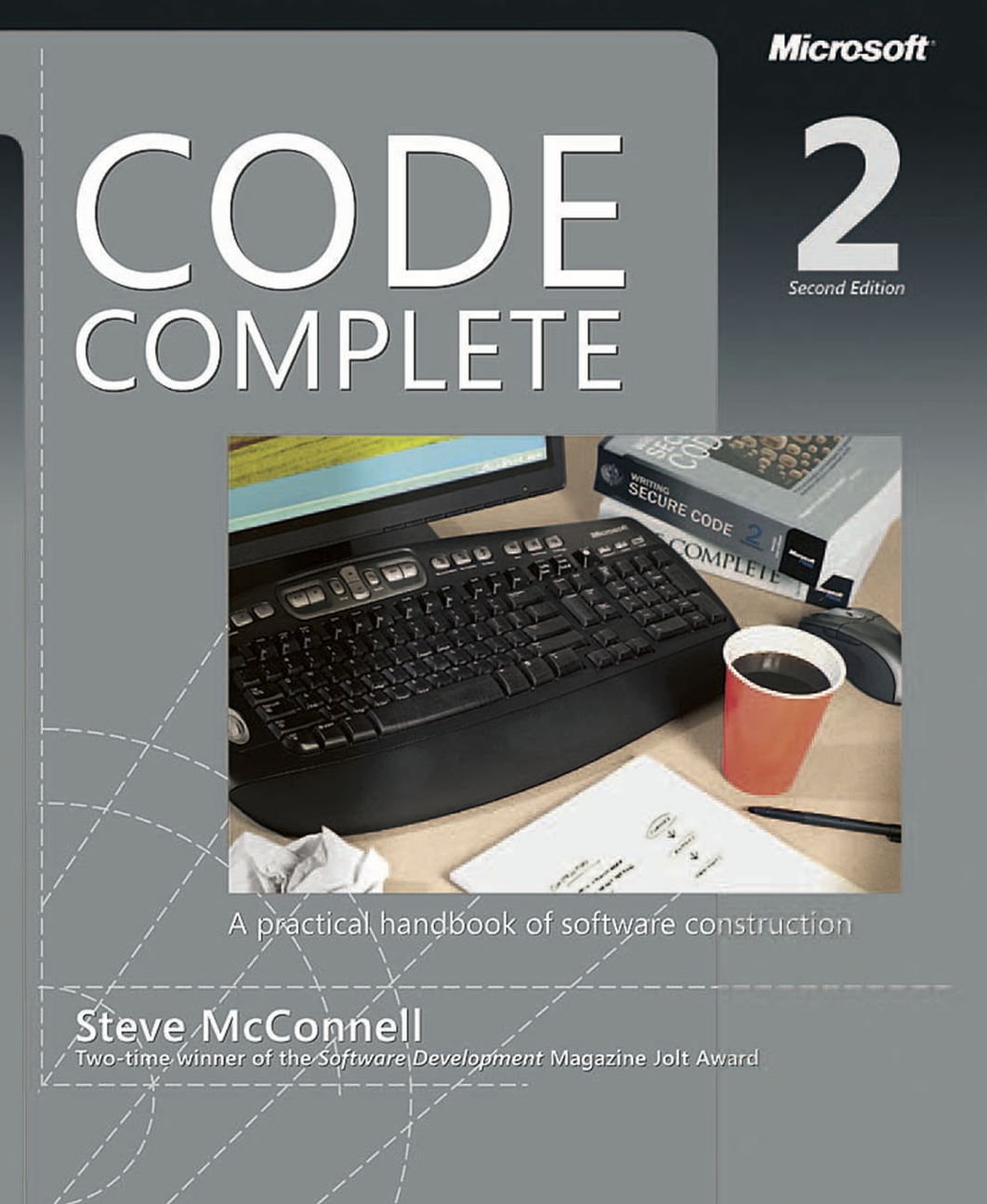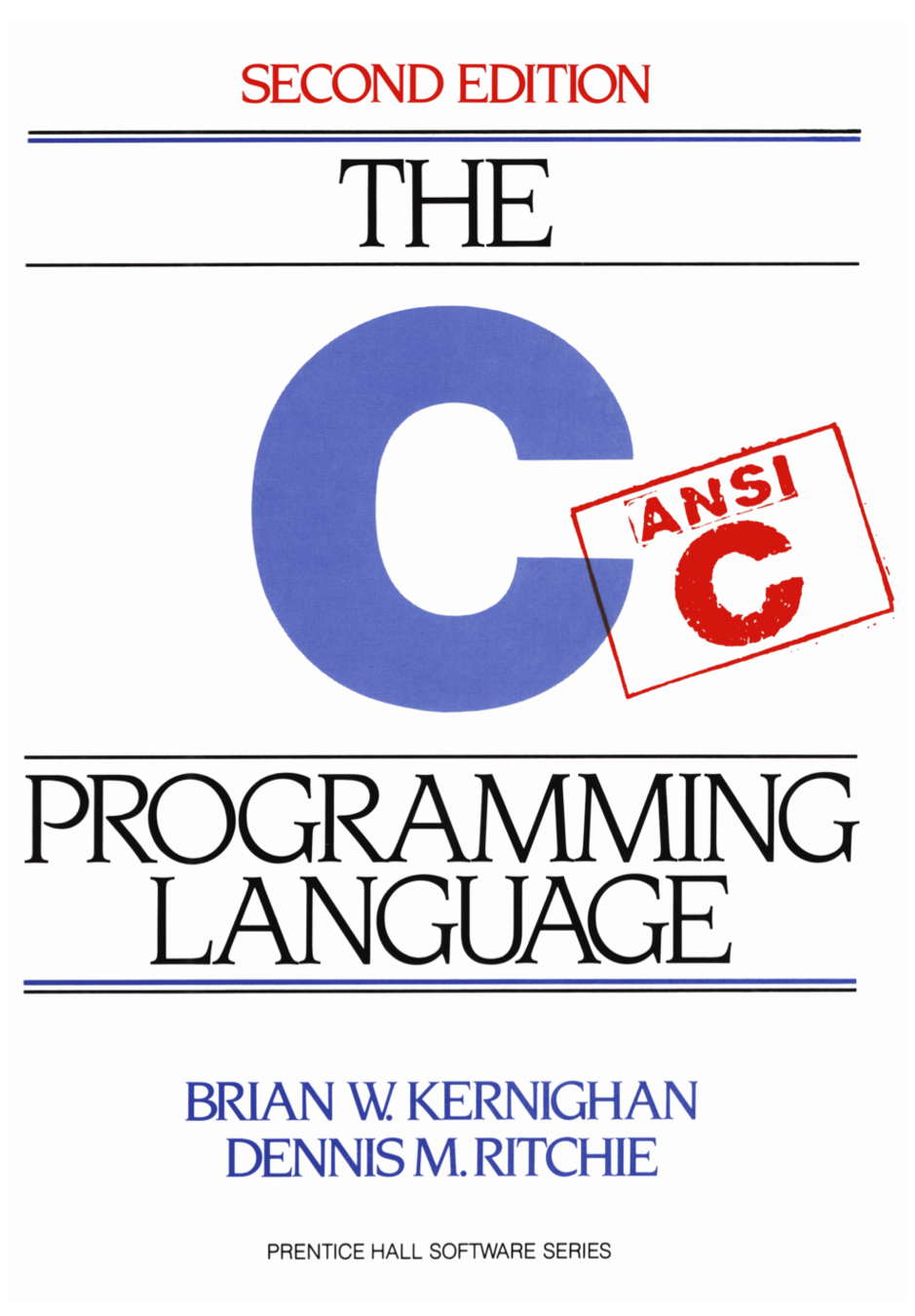Keep It Local
Or: (part of) what “reasoning about your code” really means
Chris Krycho
March 2021


The C Programming Language cover by Prentice Hall
Code Complete 2 cover by Pearson

function doSomething(anArg) {
let i, total = 0, max, min;
max = getMax(anArg);
min = max < 100 ? 0 : 100;
for (i = min; i < max; i++) {
total += i;
}
}function doSomething(anArg) {
let max = getMax(anArg);
let min = max < 100 ? 0 : 100;
let total = 0;
for (let i = min; i < max; i++) {
total += i;
}
}function doSomething(anArg) {
let max = getMax(anArg);
let min = max < 100 ? 0 : 100;
let total = getTotal(min, max);
}
function getTotal(min, max) {
let total = 0;
for (let i = min; i < max; i++) {
total += i;
}
return total;
}Rust!
Rust!
Two fundamental rules:
- Data has one owner
-
No shared mutable data
- infinite read access OR
- exactly one write access
Pure functional programming!
Pure functional programming!
Purity: when a function—
-
only has access to its arguments
- no global state
- no global functions (console.log)
-
cannot mutate values
- not its arguments
- not other state (no access!)
Pure functional programming!
Benefits:
- consistent results: same input→same output
- no mutating arguments or global state
- “referential transparency”
Purity: when a function—
-
only has access to its arguments
- no global state
- no global functions (console.log)
-
cannot mutate values
- not its arguments
- not other state (no access!)
“Reasoning about your code”?
“Reasoning about your code”?
“Computer Science” reasoning:
- Algorithmic complexity
- Space (memory) usage
“Reasoning about your code”?
“Computer Science” reasoning:
- Algorithmic complexity
- Space (memory) usage
“Code change” reasoning:
- fixing bugs
- improving performance
- adding new features
- changing existing feature
“Reasoning about your code”?
“Computer Science” reasoning:
- Algorithmic complexity
- Space (memory) usage
“Code change” reasoning:
- fixing bugs
- improving performance
- adding new features
- changing existing feature
The most important reasoning:
- does it actually work?
Local Reasoning!
“Reasoning about your code”?
Local Reasoning!
“Reasoning about your code”?
Shrink the radius of thought!
Local Reasoning!
“Reasoning about your code”?
Shrink the radius of thought!
Local Reasoning!
Local Reasoning!
Code Complete 2
Local Reasoning!
variable scope
- comprehensibility
- refactoring
Code Complete 2
Local Reasoning!
variable scope
- comprehensibility
- refactoring
Code Complete 2
Rust
Local Reasoning!
variable scope
- comprehensibility
- refactoring
control over mutability
- comprehensibility
- refactoring
- elimination of bugs
Code Complete 2
Rust
Local Reasoning!
variable scope
- comprehensibility
- refactoring
control over mutability
- comprehensibility
- refactoring
- elimination of bugs
Code Complete 2
Rust
Pure functional
Local Reasoning!
variable scope
- comprehensibility
- refactoring
control over mutability
- comprehensibility
- refactoring
- elimination of bugs
Code Complete 2
Rust
Pure functional
purity & immutability → referential transparency
- comprehensibility
- refactoring
- elimination of bugs
Local Reasoning!
“Reasoning about your code”?
Shrink the radius of thought!
Case studies
Case studies
…our intellectual powers are rather geared to master static relations and… our powers to visualize processes evolving in time are relatively poorly developed. For that reason we should do (as wise programmers aware of our limitations) our utmost to shorten the conceptual gap between the static program and the dynamic process, to make the correspondence between the program (spread out in text space) and the process (spread out in time) as trivial as possible.
“
—Edgar Djikstra, “Go To Considered Harmful”, 1968
: GOTO
Case studies
…our intellectual powers are rather geared to master static relations and… our powers to visualize processes evolving in time are relatively poorly developed. For that reason we should do (as wise programmers aware of our limitations) our utmost to shorten the conceptual gap between the static program and the dynamic process, to make the correspondence between the program (spread out in text space) and the process (spread out in time) as trivial as possible.
“
—Edgar Djikstra, “Go To Considered Harmful”, 1968
shorten the conceptual gap between the
static program and the dynamic process,
“
between the program
in text space
and the process
in time
: GOTO
Case studies
“
—Edgar Djikstra, “Go To Considered Harmful”, 1968
shorten the conceptual gap between the
static program and the dynamic process,
“
between the program
in text space
and the process
in time
…
…
…
…
: GOTO
Case studies
: GOTO
global reasoning
GOTO:
Case studies
: GOTO
local reasoning
structured programming:
Case studies
: GOTO
local reasoning
structured programming:
global reasoning
GOTO:
reasoning about control flow
Case studies
: Global Mutable State
local reasoning
explicit argument passing:
global reasoning
global mutable variables:
reasoning about data change
Case studies
: Encapsulation
reasoning about class methods
encapsulated data:
reasoning about any function
shared mutable data:
reasoning about data change
Case studies
: SOLID
reasoning about interfaces
Case studies
: SOLID
- Single Responsibility Principle
- Open-Closed Principle
- Liskov Substitution Principle
- Interface Segregation Principle
- Dependency Inversion Principle
Case studies
: The Actor Model
Case studies
: The Actor Model
reasoning about fault tolerance
independent failure & recovery
actor-based systems:
system-wide failure & recovery
monolithic systems:
Case studies
: Types
class User {
constructor(
name: string,
age: number,
email: string,
state: State,
) {}
}
Case studies
: Types
class User {
constructor(
name: string,
age: number,
email: string,
state: State,
) {}
}
function describe(user: User): string {
return `${user.name} is ${user.age} years old`;
}
Case studies
: Types
class User {
constructor(
name: string,
age: number,
email: string,
state: State,
) {}
}
function describe(person: { name: string; age: number }): string {
return `${person.name} is ${person.age} years old`;
}
Case studies
: Types
reasoning about a
describe(user: User) {...}
whole class
Case studies
: Types
describe(person: { name: string, age: number }) {...}
reasoning about
structured data
Case studies
: Types
describe(user: User) {...}
describe(person: { name: string, age: number }) {...}
reasoning about data coupling
reasoning about
structured data
reasoning about a
whole class
Case studies
: Autotracking
Case studies
: Autotracking
consumer-driven
Observable-based systems:
- Classic computed properties
- computed(...)
- get and set
- two-way-binding
- Observers and observer-likes
- arbitrary further “pushes”
- observer(...), didReceiveAttrs, etc.
Case studies
: Autotracking
owner-managed
Autotracking:
- @tracked root state
- 1-way data flow
- no 2-way binding
- no observers
→ no arbitrary reactivity
→ no arbitrary “pushes”
Case studies
: Autotracking
reasoning about reactivity
consumer-driven
Observable-based systems:
owner-managed
Autotracking: